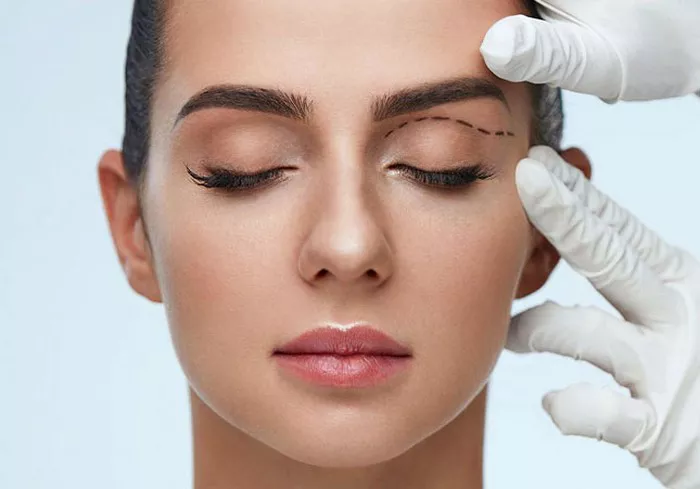Waking up with puffy eyes can be a frustrating and common problem for many people. While there are many causes of eye puffiness, there are also steps that can be taken to prevent it. In this article, we will explore how to prevent eye puffiness in the morning and what tips and tricks can be used to keep the eyes looking fresh and alert.
Causes of Eye Puffiness
Before exploring how to prevent eye puffiness in the morning, it is important to understand what causes it. Some common causes of eye puffiness include:
Lack of Sleep
One of the most common causes of eye puffiness is lack of sleep. When the body does not get enough rest, it can cause fluid to accumulate around the eyes, resulting in puffiness.
Allergies
Allergies can also cause eye puffiness by causing inflammation and fluid retention.
Dehydration
When the body is dehydrated, it can cause the eyes to become puffy. This is because the body retains water to compensate for the lack of hydration.
Salt Intake
Consuming too much salt can also cause eye puffiness by causing the body to retain water.
Aging
As the body ages, the skin around the eyes can become thinner and lose elasticity, resulting in puffiness.
Tips to Prevent Eye Puffiness in the Morning
Get Enough Sleep
Getting enough sleep is one of the most important steps to prevent eye puffiness in the morning. Aim for 7-9 hours of sleep per night to help reduce the risk of puffiness.
Elevate the Head
Elevating the head while sleeping can also help prevent eye puffiness by promoting proper fluid drainage. Use an extra pillow or a wedge pillow to elevate the head while sleeping.
Hydrate the Body
Staying hydrated is important for preventing eye puffiness. Drink plenty of water throughout the day to help flush out excess fluids and reduce the risk of puffiness.
Reduce Salt Intake
Reducing salt intake can also help prevent eye puffiness by reducing fluid retention. Avoid processed foods and opt for fresh, whole foods instead.
Use Cold Compresses
Using cold compresses can help reduce puffiness by constricting blood vessels and reducing inflammation. Place a cold compress over the eyes for 10-15 minutes each morning to help reduce the risk of puffiness.
Avoid Allergens
If allergies are causing eye puffiness, it is important to avoid allergens as much as possible. This may include avoiding certain foods, using air purifiers, and taking allergy medication.
Use Eye Creams
Using eye creams can also help prevent eye puffiness by hydrating the skin and promoting collagen production. Look for eye creams that contain caffeine or vitamin K, which can help reduce inflammation and promote proper fluid drainage.
Conclusion
In conclusion, while eye puffiness can be a frustrating problem, there are steps that can be taken to prevent it. Getting enough sleep, elevating the head while sleeping, hydrating the body, reducing salt intake, using cold compresses, avoiding allergens, and using eye creams can all help prevent eye puffiness in the morning.
By incorporating these tips and tricks into a daily routine, it is possible to keep the eyes looking fresh and alert, even after a long night’s sleep.
FAQs
1. How do I get rid of puffy eyes in the morning?
To reduce puffy eyes in the morning, try these remedies:
Get adequate sleep, aiming for 7-9 hours per night.
Use an extra pillow to elevate your head slightly while sleeping to encourage fluid drainage.
Wash your face with cold water or apply a cold, damp washcloth to your eyes for a few minutes in the morning to constrict blood vessels and reduce swelling.
Avoid excessive fluid intake or alcohol consumption before bedtime to minimize fluid retention.
Use eye creams or eye masks containing soothing and anti-inflammatory ingredients to alleviate puffiness and reduce under-eye bags.
2. Why are my eyes so puffy when I wake up?
Several factors can contribute to puffy eyes upon waking:
Lack of sleep or poor sleep quality, preventing the body from fully resting and eliminating waste.
Consuming excess salt or water, leading to fluid retention in the body.
Excessive alcohol consumption, disrupting fluid balance in the body.
Genetic factors, such as hereditary under-eye bags or puffiness.
Aging, resulting in decreased skin elasticity and fat displacement.
3. Why do I get bags under my eyes when I wake up?
Bags under the eyes may occur due to sagging of eye tissues and fat herniation, causing the skin around the eyes to droop and form protruding bag-like structures. This phenomenon may be exacerbated during sleep as bodily fluids flow downward, making under-eye bags more prominent. Factors such as aging, genetic predisposition, excessive salt intake, and dehydration can also contribute to the formation of under-eye bags.
4. What are puffy eyes a symptom of?
Puffy eyes can be a symptom of various underlying issues, including:
Lack of sleep or poor sleep quality.
Allergies, such as hay fever or allergic reactions to skincare products.
Sinus congestion or sinusitis.
Fluid retention due to excess salt intake, dehydration, or hormonal changes.
Aging-related changes in skin elasticity and fat distribution.
Genetics, with some individuals more prone to under-eye puffiness than others.
If puffy eyes persist or are accompanied by other concerning symptoms, it’s advisable to consult a healthcare professional for proper evaluation and treatment.


